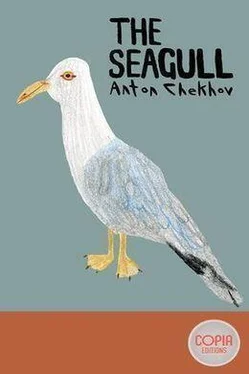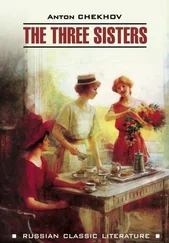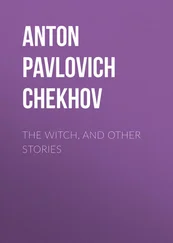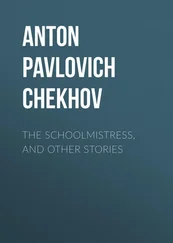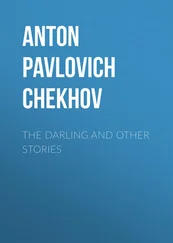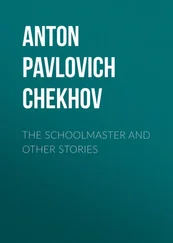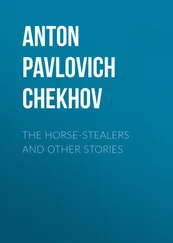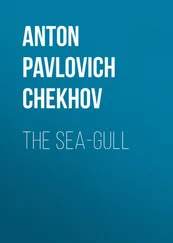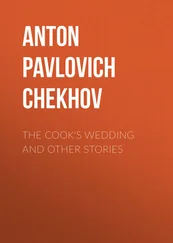Anton Chekhov - The Seagull
Здесь есть возможность читать онлайн «Anton Chekhov - The Seagull» весь текст электронной книги совершенно бесплатно (целиком полную версию без сокращений). В некоторых случаях можно слушать аудио, скачать через торрент в формате fb2 и присутствует краткое содержание. Год выпуска: 2014, Издательство: epubBooks Classics, Жанр: Драматургия, на английском языке. Описание произведения, (предисловие) а так же отзывы посетителей доступны на портале библиотеки ЛибКат.
- Название:The Seagull
- Автор:
- Издательство:epubBooks Classics
- Жанр:
- Год:2014
- ISBN:нет данных
- Рейтинг книги:3 / 5. Голосов: 1
-
Избранное:Добавить в избранное
- Отзывы:
-
Ваша оценка:
- 60
- 1
- 2
- 3
- 4
- 5
The Seagull: краткое содержание, описание и аннотация
Предлагаем к чтению аннотацию, описание, краткое содержание или предисловие (зависит от того, что написал сам автор книги «The Seagull»). Если вы не нашли необходимую информацию о книге — напишите в комментариях, мы постараемся отыскать её.
The Seagull — читать онлайн бесплатно полную книгу (весь текст) целиком
Ниже представлен текст книги, разбитый по страницам. Система сохранения места последней прочитанной страницы, позволяет с удобством читать онлайн бесплатно книгу «The Seagull», без необходимости каждый раз заново искать на чём Вы остановились. Поставьте закладку, и сможете в любой момент перейти на страницу, на которой закончили чтение.
Интервал:
Закладка:
SHAMRAEFF. He will get there all right, he is not a major–general.
PAULINA. Come, let us begin. Don't let us waste time, we shall soon be called to supper.
SHAMRAEFF, MASHA, and DORN sit down at the card–table.
ARKADINA. [To TRIGORIN] When the long autumn evenings descend on us we while away the time here by playing lotto. Look at this old set; we used it when our mother played with us as children. Don't you want to take a hand in the game with us until supper time? [She and TRIGORIN sit down at the table] It is a monotonous game, but it is all right when one gets used to it. [She deals three cards to each of the players.]
TREPLIEFF. [Looking through the pages of the magazine] He has read his own story, and hasn't even cut the pages of mine.
He lays the magazine on his desk and goes toward the door on the right, stopping as he passes his mother to give her a kiss.
ARKADINA. Won't you play, Constantine?
TREPLIEFF. No, excuse me please, I don't feel like it. I am going to take a turn through the rooms. [He goes out.]
MASHA. Are you all ready? I shall begin: twenty–two.
ARKADINA. Here it is.
MASHA. Three.
DORN. Right.
MASHA. Have you put down three? Eight. Eighty–one. Ten.
SHAMRAEFF. Don't go so fast.
ARKADINA. Could you believe it? I am still dazed by the reception they gave me in Kharkoff.
MASHA. Thirty–four. [The notes of a melancholy waltz are heard.]
ARKADINA. The students gave me an ovation; they sent me three baskets of flowers, a wreath, and this thing here.
She unclasps a brooch from her breast and lays it on the table.
SHAMRAEFF. There is something worth while!
MASHA. Fifty.
DORN. Fifty, did you say?
ARKADINA. I wore a perfectly magnificent dress; I am no fool when it comes to clothes.
PAULINA. Constantine is playing again; the poor boy is sad.
SHAMRAEFF. He has been severely criticised in the papers.
MASHA. Seventy–seven.
ARKADINA. They want to attract attention to him.
TRIGORIN. He doesn't seem able to make a success, he can't somehow strike the right note. There is an odd vagueness about his writings that sometimes verges on delirium. He has never created a single living character.
MASHA. Eleven.
ARKADINA. Are you bored, Peter? [A pause] He is asleep.
DORN. The Councillor is taking a nap.
MASHA. Seven. Ninety.
TRIGORIN. Do you think I should write if I lived in such a place as this, on the shore of this lake? Never! I should overcome my passion, and give my life up to the catching of fish.
MASHA. Twenty–eight.
TRIGORIN. And if I caught a perch or a bass, what bliss it would be!
DORN. I have great faith in Constantine. I know there is something in him. He thinks in images; his stories are vivid and full of colour, and always affect me deeply. It is only a pity that he has no definite object in view. He creates impressions, and nothing more, and one cannot go far on impressions alone. Are you glad, madam, that you have an author for a son?
ARKADINA. Just think, I have never read anything of his; I never have time.
MASHA. Twenty–six.
TREPLIEFF comes in quietly and sits down at his table.
SHAMRAEFF. [To TRIGORIN] We have something here that belongs to you, sir.
TRIGORIN. What is it?
SHAMRAEFF. You told me to have the sea–gull stuffed that Mr. Constantine killed some time ago.
TRIGORIN. Did I? [Thoughtfully] I don't remember.
MASHA. Sixty–one. One.
TREPLIEFF throws open the window and stands listening.
TREPLIEFF. How dark the night is! I wonder what makes me so restless.
ARKADINA. Shut the window, Constantine, there is a draught here.
TREPLIEFF shuts the window.
MASHA. Ninety–eight.
TRIGORIN. See, my card is full.
ARKADINA. [Gaily] Bravo! Bravo!
SHAMRAEFF. Bravo!
ARKADINA. Wherever he goes and whatever he does, that man always has good luck. [She gets up] And now, come to supper. Our renowned guest did not have any dinner to–day. We can continue our game later. [To her son] Come, Constantine, leave your writing and come to supper.
TREPLIEFF. I don't want anything to eat, mother; I am not hungry.
ARKADINA. As you please. [She wakes SORIN] Come to supper, Peter. [She takes SHAMRAEFF'S arm] Let me tell you about my reception in Kharkoff.
PAULINA blows out the candles on the table, then she and DORN roll SORIN'S chair out of the room, and all go out through the door on the left, except TREPLIEFF, who is left alone. TREPLIEFF prepares to write. He runs his eye over what he has already written.
TREPLIEFF. I have talked a great deal about new forms of art, but I feel myself gradually slipping into the beaten track. [He reads] "The placard cried it from the wall—a pale face in a frame of dusky hair"—cried—frame—that is stupid. [He scratches out what he has written] I shall begin again from the place where my hero is wakened by the noise of the rain, but what follows must go. This description of a moonlight night is long and stilted. Trigorin has worked out a process of his own, and descriptions are easy for him. He writes that the neck of a broken bottle lying on the bank glittered in the moonlight, and that the shadows lay black under the mill–wheel. There you have a moonlight night before your eyes, but I speak of the shimmering light, the twinkling stars, the distant sounds of a piano melting into the still and scented air, and the result is abominable. [A pause] The conviction is gradually forcing itself upon me that good literature is not a question of forms new or old, but of ideas that must pour freely from the author's heart, without his bothering his head about any forms whatsoever. [A knock is heard at the window nearest the table] What was that? [He looks out of the window] I can't see anything. [He opens the glass door and looks out into the garden] I heard some one run down the steps. [He calls] Who is there? [He goes out, and is heard walking quickly along the terrace. In a few minutes he comes back with NINA ZARIETCHNAYA] Oh, Nina, Nina!
NINA lays her head on TREPLIEFF'S breast and stifles her sobs.
TREPLIEFF. [Deeply moved] Nina, Nina! It is you—you! I felt you would come; all day my heart has been aching for you. [He takes off her hat and cloak] My darling, my beloved has come back to me! We mustn't cry, we mustn't cry.
NINA. There is some one here.
TREPLIEFF. No one is here.
NINA. Lock the door, some one might come.
TREPLIEFF. No one will come in.
NINA. I know your mother is here. Lock the door.
TREPLIEFF locks the door on the right and comes back to NINA.
TREPLIEFF. There is no lock on that one. I shall put a chair against it. [He puts an arm–chair against the door] Don't be frightened, no one shall come in.
NINA. [Gazing intently into his face] Let me look at you. [She looks about her] It is warm and comfortable in here. This used to be a sitting–room. Have I changed much?
TREPLIEFF. Yes, you have grown thinner, and your eyes are larger than they were. Nina, it seems so strange to see you! Why didn't you let me go to you? Why didn't you come sooner to me? You have been here nearly a week, I know. I have been several times each day to where you live, and have stood like a beggar beneath your window.
NINA. I was afraid you might hate me. I dream every night that you look at me without recognising me. I have been wandering about on the shores of the lake ever since I came back. I have often been near your house, but I have never had the courage to come in. Let us sit down. [They sit down] Let us sit down and talk our hearts out. It is so quiet and warm in here. Do you hear the wind whistling outside? As Turgenieff says, "Happy is he who can sit at night under the roof of his home, who has a warm corner in which to take refuge." I am a sea–gull—and yet—no. [She passes her hand across her forehead] What was I saying? Oh, yes, Turgenieff. He says, "and God help all houseless wanderers." [She sobs.]
Читать дальшеИнтервал:
Закладка:
Похожие книги на «The Seagull»
Представляем Вашему вниманию похожие книги на «The Seagull» списком для выбора. Мы отобрали схожую по названию и смыслу литературу в надежде предоставить читателям больше вариантов отыскать новые, интересные, ещё непрочитанные произведения.
Обсуждение, отзывы о книге «The Seagull» и просто собственные мнения читателей. Оставьте ваши комментарии, напишите, что Вы думаете о произведении, его смысле или главных героях. Укажите что конкретно понравилось, а что нет, и почему Вы так считаете.
